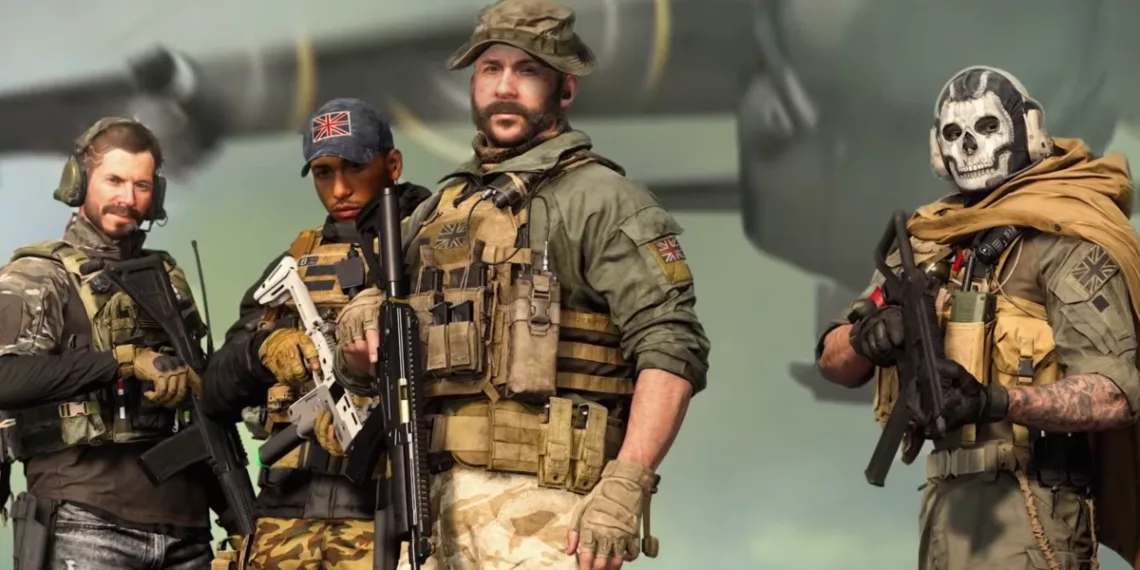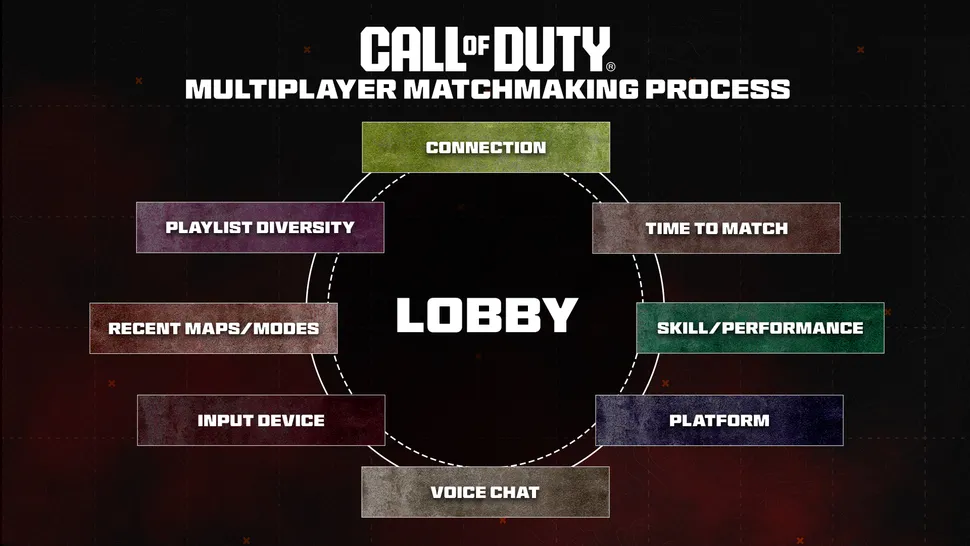In a groundbreaking reveal, Activision has finally lifted the veil on the intricate workings of Call of Duty’s matchmaking system, a topic that has long sparked debates and theories among its vast player base.
This detailed exposition, which steers clear of touching upon Warzone matchmaking or ranked modes, provides a comprehensive look into the various factors that influence how players are grouped in one of the world’s most popular first-person shooter games.
At the core of Call of Duty’s matchmaking philosophy is the emphasis on connection quality and reducing wait times. The primary factor in matchmaking is the connection, with Activision stressing the importance of low ping to ensure a smooth gaming experience. This is followed closely by the time taken to match players, reflecting the developer’s commitment to minimizing the waiting period before gamers can dive into the action.
Beyond the Basics: Skill and More
While these might be the most weighted factors, the matchmaking system is far from simplistic. A range of other elements plays a crucial role:
- Playlist Diversity: This ensures a variety of game modes and playlists are available to players.
- Recent Maps/Modes: Taking into account the maps and modes players have recently engaged with.
- Skill/Performance: Contrary to popular belief, skill is considered in the matchmaking process but isn’t the dominant variable. It’s utilized to create balanced matches where players have a fair chance of impacting the game’s outcome.
- Input Device and Platform: Whether the player uses a controller or mouse and keyboard, and the gaming platform.
- Voice Chat: Whether it is enabled or disabled.
Activision’s clarification on the role of skill in matchmaking is particularly enlightening, as it debunks several fan theories. Some players have argued that skill-based matchmaking (SBMM) leads to consistently challenging and strenuous matches. However, Activision’s data suggests that incorporating skill in matchmaking diversifies player experiences, leading to a more balanced distribution of wins and losses across all skill levels.
The Misconceptions and Realities of Skill-Based Matchmaking
Activision further debunks myths surrounding the game’s skill assessment, stating that a variety of factors, including kills, deaths, wins, losses, mode selection, and recent matches, contribute to a player’s skill level. This contradicts the widespread belief that Call of Duty focuses solely on recent performance or that it deliberately handicaps players after a winning streak.
The developer also addresses concerns about lower-skilled players being consistently outmatched, leading to their disengagement and, ultimately, a diminished player pool. This, in turn, could increase match wait times and degrade connection quality, creating a less desirable gaming environment for all.
Interestingly, Activision reveals that SBMM has been a component of Call of Duty matchmaking since “Call of Duty 4: Modern Warfare,” released in 2007. This counters the narrative that the series was “better before SBMM.”
An amusing, yet insightful, aspect of the post concerns the common practice among FPS players of restarting matchmaking to hasten the process. Activision confirms that this strategy is ineffective, akin to repeatedly pressing a crosswalk button.


















































